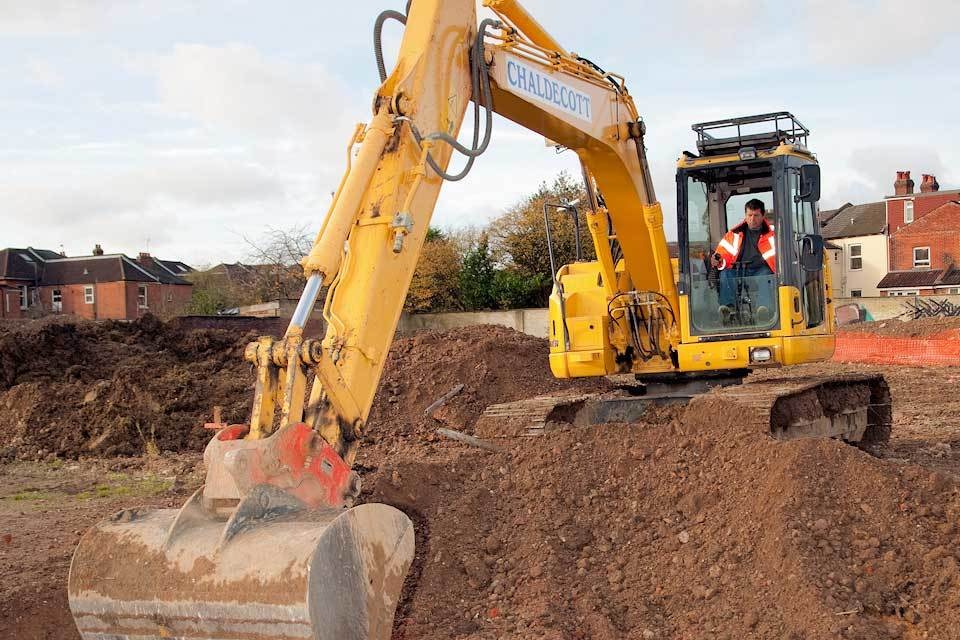Does the Brownfield Land Release Fund go far Enough?

After an announcement of thousands of new homes to be built on underused and derelict land through a £58 million scheme, Housing Industry Leaders looks at how this will regenerate local areas and help people onto the property ladder.
Thousands of new homes will be built on underused and derelict land to regenerate local areas and help people onto the property ladder, the Department for Levelling Up, Housing and Communities announced today (12 October 2021).
Almost £58 million from the £75 million Brownfield Land Release Fund (BLRF) has been allocated to 53 councils in a bid to develop brownfield land into good quality housing.
The funding will also boost local areas by transforming unloved and disused sites into vibrant communities for people to live and work, with the demolition of unsightly derelict buildings and disused car parks and garages.
5,600 homes are set to be built, supporting up to 17,000 jobs across the housing and construction sector
However, the plans are yet to announce whether these homes will be social or private housing.
If the plans were to include social housing within these developments, it would benefit the wider economy more than that of the private sector. The more money invested to support the development of social housing, the lower the expense on housing benefits too.
Increased investment in social housing also reduces the housing market’s current instability by steadying the UK’s housing market.
Cabinet Office Minister, Lord Agnew told Housing Industry Leaders: “This support being provided to local authorities is another clear demonstration of this government’s commitment to levelling up the country.”
The latest projects to benefit from this support, through Brownfield Land Release funding, will not only help unlock under-used public sector sites for homes but also help deliver jobs and save taxpayers’ money.
Using the funds for private housing developments also poses a potential for a rolling programme of retrofitting. By individual landlords keeping up to date with retrofitting, it would allow for greater economic and environmental benefits.
Over £8.61 billion could be saved in energy bills annually if all homes were improved to EPC rating C, and this figure could only increase if up to date retrofitting is managed.
The announcement comes as part of the government’s plan to build 300,000 new homes a year by the mid-2020s
Boosting the housing supply is central to the levelling up agenda set by the government. Last year 244,000 homes were delivered – the highest number of new homes for over 30 years.
The government last year announced the £400 million Brownfield Fund for 7 mayoral combined authorities which will also deliver much-needed new homes on brownfield land – unlocking 26,000 high-quality homes.
Redeveloping a Brownfield site not only boosts the economy by creating jobs and lifting property prices, but it improves the environment and creates a safer, healthier space. It also can be cheaper to build on as vital infrastructure such as drainage, electricity, roads, and transport networks already exist.
Cllr James Jamieson, Local Government Association Chairman, told Housing Industry Leaders: “One Public Estate and Brownfield Land Release funding play a crucial role in supporting the recovery from the COVID-19 crisis, and supporting councils to transform their assets, create better services, and release land for much-needed new homes and regeneration across the country.”
This latest news is more proof that this programme works. Councils recognise how valuable this support is, and are being ever more ambitious in their ideas to use this funding to kick-start transformation, regeneration, and new development in their communities.
The £150 million backed Help to Build scheme was announced in April. It will allow access to low deposit mortgages and improve the affordability of homeownership for people who want to build their own homes in a similar way to the Help to Buy scheme.
In addition to this announcement, the review by Richard Bacon MP, which recommended a major scaling up of the self and custom build sector, has been warmly welcomed by the government with a response to the findings to be published in due course.

